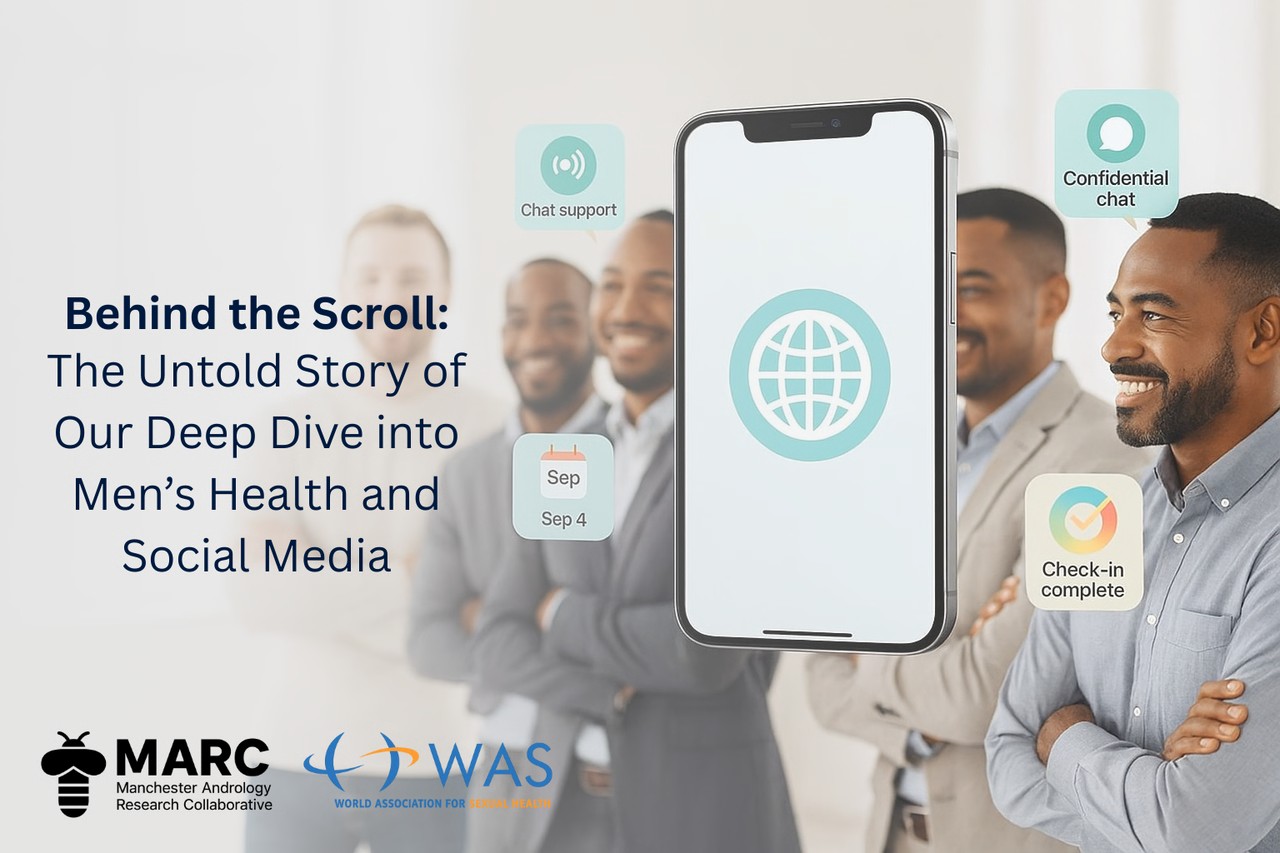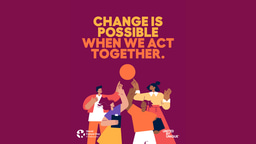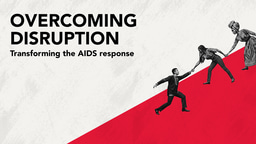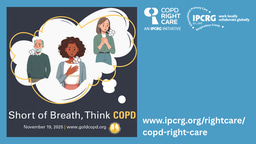World Sexual Health Day 2025 - Sexual Justice is a Human Right
Published in Sustainability and Paediatrics, Reproductive Medicine & Geriatrics

Every year on September 4th, the world comes together to celebrate World Sexual Health Day – an initiative dedicated to promoting awareness about the importance of sexual health, sexual rights, and justice. It’s a day to remember that sexual wellbeing is a fundamental part of human health and thus it is a public and global health concern.
Sexual health is a human right, yet around the world stigmas and barriers continue to cloud conversations that are vital to our well-being. As the WHO describes it: “Sexual Health is a state of physical, emotional, mental and social well-being related to sexuality; it is not merely the absence of disease, dysfunction or infirmity.” Instead of silencing people with shame and misinformation, we need to spread the knowledge and support that people need to make informed, empowered choices.
On this day, by engaging in and encouraging discussions surrounding sexual health, we are not just protecting individual rights, but we are advocating for public health, gender equality, and human rights. In doing so, we work towards fulfilling Sustainable Development Goal 3 (SDG3): Good Health and Wellbeing for all.

More importantly, SDG3 Target 3.7 wants us to “By 2030, ensure universal access to sexual and reproductive health-care services, including for family planning, information and education, and the integration of reproductive health into national strategies and programmes”; further stating the importance of this day.
This year, the theme for World Sexual Health Day is consent: the foundation of respectful relationships and bodily autonomy. By centring consent in sexual health conversations, we promote dignity and respect, and we highlight the importance of living free from violence, coercion, and harm. Lack of consent is at the root of sexual violence and abuse, which carry long-term physical and mental health impacts. That’s why World Sexual Health Day is more than a date on the calendar - it’s a call to action.
By celebrating this day, we affirm the right to safe, consensual experiences and commit to advocacy, education, and systemic change that protects and empowers every individual.
Highlights from Springer Nature Journals

Access to information about sexual health is important, but stigma can make many people hesitant to ask their healthcare providers questions. Therefore, many people turn to social media to find information. A recent review in the journal Basic and Clinical Andrology explored the growing use of social media to find information about questions related to men’s sexual health. The review found that posts about men’s health topics were popular but contained a high degree of misinformation. The authors also wrote a Behind the Paper blog post further discussing their findings and suggested next steps.
Dr Annette Fenner, Chief Editor of Nature Reviews Urology, kindly answered a few questions to celebrate this Awareness Day so that we could post a Q&A blog! Read more to learn about Dr Fenner’s journey to become Chief Editor and her thoughts and hopes surrounding the importance and future of sexual health and medicine.

Nature Reviews Urology publishes articles surrounding Reproductive Biology, Andrology, Female urology, Infection, Fertility, Sexual psychology, Cancers of the reproductive system and much more. Pride, not prejudice is an editorial describing the importance of Pride in sexual health and states that the journal vows to empower and celebrate the value of diversity in 2025; the article discusses how unacceptable it is that the funding for diversity, equity and inclusion projects has stopped in the USA, thus threatening inclusion and understanding of diverse views in sexual health. Indeed, there are many interesting reads in the journal surrounding sexuality, gender identity, and sexual orientation: XYGO: proposing a new holistic measure of gender identity and sexual orientation; We all get erections — de-gendering sexual arousal dysfunction in the ICD; Sexual health and treatment-related sexual dysfunction in sexual and gender minorities with prostate cancer.
There are many research papers published in Springer Nature journals focusing on women’s sexual and reproductive health: read about research on the mycobiome in the female genital tract, developing new drug delivery systems for women’s reproductive health, creating a wearable sweat biosensor to track hormones in real time, and exploring features of apps helping women on probation manage their health (and sexual health) and safety. Many articles also call for further research surrounding women’s sexual health: read this conversation on gender bias and discrimination in the HIV response and this article demanding novel prophylactic HPV vaccines due to an increase in cervical cancer cases.
Read about research on transgender people’s sexual health: for example, how gender affirming hormone therapy may have long-term immunological effects as well as be impacting the gut microbiota. Another article discusses the structural barriers to sexual and reproductive health care faced by Black and Latina cisgender and transgender US women who use drugs.
Collections calling for submissions
There are a few Journal Collections that are calling for submissions surrounding Sexual Health; click on the links below to learn about submission deadlines and more.
The journal Basic and Clinical Andrology currently has two open collections:
- Sexual Health, looking for articles on knowledge, attitudes, communication, healthcare use, sexual behaviour and adverse events surrounding sexual health;
- Occupational Exposure and Male Reproduction, looking for articles exploring how environmental contaminants can be harmful for male reproduction.
The IJIR: Your Sexual Medicine Journal has two open collections:
- Endocrine System & Sexology, aiming to explore the impact of hormones on human sexuality;
- Rare Sexual Disorders, looking to highlight how rare sexual disorders are a challenge that is often overlooked.
BMC Medicine has an open collection on Mpox: Epidemiology, prevention, and treatment.
The BMC Global and Public Health journal is calling for submissions on Sexual Health Education.
Finally, the Reproductive Health journal is publishing a supplement on The SRH Outbreak research response team within the Department of Sexual and Reproductive health. The journal is also looking for submissions on Reproductive Health Equity for Migrants, Refugees, and Internally Displaced Populations.
Highlights from the ISRCTN Clinical Study Registry
A trial on the ISRCT Clinical Study Registry (ISRCTN17254547), is looking at “Improving youth-friendly sexual and reproductive health services through gender transformative and intersectional approaches in Nigeria”. This study is being carried out by the Health Policy Research Group (HPRG) of the University of Nigeria; a project which is particularly interested in improving the sexual and reproductive rights (SRHR) for Nigerian young people. As Ifunanya Clara Agu explains in her blog, this collaborative project wants to address the challenges that young people in Nigeria are facing that are preventing them from accessing SRHR services and are causing them to commonly experience sexual and reproductive health burden.
Another clinical trial (ISRCTN32355507) is exploring a multi-target PCR approach for detecting nine common sexually transmitted infections (STIs), which are routinely tested via urine samples and swabs. If successful, a PCR approach could be a faster way of being tested for STIs, leading to faster treatment and potentially lower cases of undetected transmission.
Lastly, this recently opened trial (ISRCTN99248870) is developing a program to start people on HIV treatment on the very same day of their diagnosis; this is known as same-day initiation (SDI). The treatment is antiretroviral therapy (ART), and research shows that early administration of ART can reduce illness, death, and spread of HIV. Many challenges prevent SDI being put into practice for HIV patients; thus, the study wants to create a plan to monitor how SDI is implemented and measure the outcomes of the treatment in South Africa.
Springer Nature Research Communities
You can find other insightful blogs related to Sexual Health by exploring our Springer Nature Research Communities website. This platform hosts a variety of articles and discussions from experts in the field; check out this blog posted last year in celebration of World Sexual Health Day 2024. Use the search function on the website to discover relevant content and stay informed about the latest developments and initiatives.
Conclusions
Sexual Health is a vital aspect of our wellbeing; we must continue to do research and educate ourselves to dismantle stigmas and improve the implementation of sexual health policies all around the world.
If you want to be further involved in spreading awareness on Sexual Health and keep the conversation going, check out the World Sexual Health Day website here.
Happy World Sexual Health Day!
Follow the Topic
-
BMC Global and Public Health

An open access, transparent peer review journal publishing outstanding and influential research and opinion of broad interest to all professional communities involved in global and public health research, policy-making, implementation and delivery worldwide.
-
International Journal of Impotence Research

This journal addresses sexual medicine for all sexes and genders as an interdisciplinary field.
-
Basic and Clinical Andrology

This is an open access journal within the domain of andrology, covering all aspects of male reproductive and sexual health in humans and animal models. The journal aims to bring to light the various clinical advancements and research developments in andrology from the international community.
-
Nature Reviews Urology

Nature Reviews' basic, translational and clinical content is written by internationally renowned basic and clinical academics and researchers and targeted towards readers in the biological and medical sciences, from postgraduate level upwards.
-
Reproductive Health

This journal focuses on all aspects of human reproduction, including adolescent health, female fertility, contraception, and maternal health and all articles are open access.
Related Collections
With Collections, you can get published faster and increase your visibility.
Reproductive Health Equity for Migrants, Refugees, and Internally Displaced Populations
This collection aims to assess disparities and barriers in access to maternal care, contraception, and safe delivery services among displaced populations —both within and across countries— compared to host communities in low- and middle-income countries (LMICs) and developed countries. Displaced populations often face significant challenges in accessing essential healthcare services, which can lead to poorer health outcomes for mothers and infants. These challenges include higher rates of maternal and infant mortality, due to inadequate access to quality maternal care and contraception, as well as increased rates of cervical and breast cancer, due to low rates of vaccination and inadequate screening.
The collection welcomes studies that explore various approaches to address these disparities, including:
• Improving cultural competency among healthcare providers. By understanding and respecting the cultural backgrounds of displaced populations, healthcare providers can offer more effective and personalized care.
• Increasing financial access to healthcare services. Many displaced individuals face financial barriers that prevent them from seeking necessary medical care. Strategies to reduce these financial obstacles can significantly improve health outcomes.
• Involving communities in the design and implementation of health programs. Community engagement ensures that health interventions are tailored to the specific needs and preferences of the populations they serve. This participatory approach can lead to more sustainable and impactful health programs.
• Encouraging innovative approaches and the implementation of relevant technologies among migrants and refugees.
• Raising awareness of prevention, screening, and access to care for cervical and breast cancers.
Overall, this collection aims to highlight innovative solutions and best practices to reduce health disparities and improve maternal and infant health among international and internally displaced populations.
This Collection supports and amplifies research related to SDG 1, No Poverty, SDG 3, Good Health and Well-Being, and SDG 10, Reduced Inequalities.
We are committed to supporting participation in this issue wherever resources are a barrier. For more information about what support may be available, please visit OA funding and support, or email OAfundingpolicy@springernature.com or contact the Editor-in-Chief.
Publishing Model: Open Access
Deadline: Mar 20, 2026
Understanding the HIV care continuum: Progress and challenges
BMC Global and Public Health is calling for submissions to our Collection on understanding the complexities and advancements in global health frameworks. This Collection will highlight key findings and challenges in maintaining continuity of care for populations affected by HIV across diverse regions.
This Collection aims to explore the multifaceted nature of HIV care, examining the ongoing challenges and recent advances in care delivery systems. We welcome contributions that offer a comprehensive understanding of how access to care, quality of treatment, and sustained engagement with healthcare systems impact health outcomes for individuals living with HIV.
Potential topics include but are not limited to:
The role of diagnosis and early detection in improving long-term health outcomes
Strategies for improving linkage to care and retention in care
The impact of antiretroviral therapy in managing HIV
Barriers to viral suppression and achieving optimal care continuity
Innovations in pre-exposure prophylaxis (PrEP) for at-risk populations
The influence of socioeconomic, cultural, and political factors on HIV care accessibility
This Collection aims to contribute to a more thorough and collaborative understanding of HIV care challenges worldwide, focusing on solutions and the pathways needed to support people living with HIV, ensuring their access to effective, ongoing care. We look forward to receiving innovative and impactful research that will push the boundaries of our current knowledge.
We encourage work from local, regional, national, and global partnerships and collaboration among multidisciplinary scientists using multiple methodologies. We ask that authors be careful to use non-stigmatizing/preferred language in their manuscripts as outlined in relevant language guidelines for their respective fields.
This Collection supports and amplifies research related to SDG 3: Good Health and Well-being and SDG 10: Reduced Inequalities.
All manuscripts submitted to this journal, including those submitted to collections and special issues, are assessed in line with our editorial policies and the journal’s peer-review process. Reviewers and editors are required to declare competing interests and can be excluded from the peer review process if a competing interest exists.
Publishing Model: Open Access
Deadline: Mar 18, 2026







Please sign in or register for FREE
If you are a registered user on Research Communities by Springer Nature, please sign in